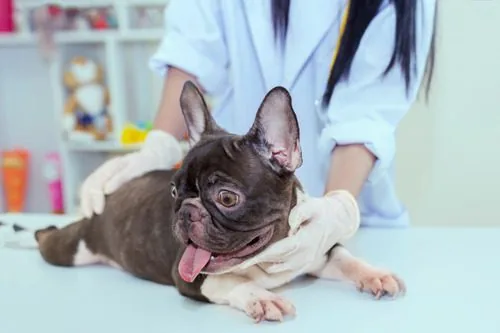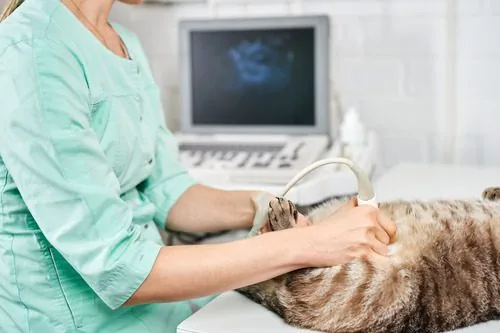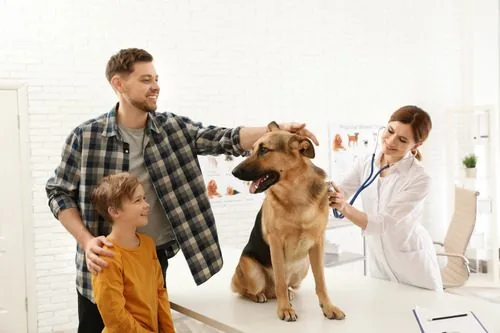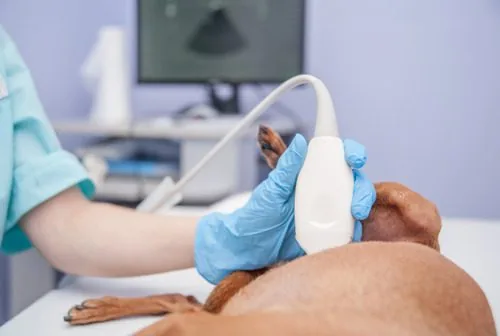What to Expect at Your Dog’s X-ray Appointment
X-rays are one of the most effective diagnostic tools in veterinary medicine. If your veterinarian has recommended a dog x-ray, you might feel uncertain about what to expect during your pet’s appointment. Understanding the process and purpose of this imaging procedure can ease your concerns and help you prepare for the visit. Whether your dog is experiencing an injury, chronic discomfort, or unexplained symptoms, an x-ray can provide critical insights to guide your vet’s diagnosis and treatment plan. Below, we’ll explain the process of dog x-rays, why they’re necessary, and what you can anticipate during your visit to Veterinary Healthcare Associates in Winter Haven, FL.
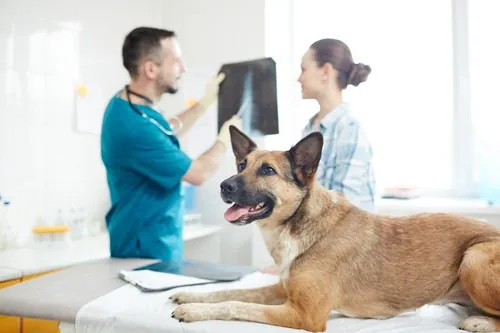
Why Are Dog X-Rays Important?
X-rays, also known as radiographs, are a non-invasive way to capture detailed images of your pet’s internal structures. These images allow your veterinarian to examine bones, joints, organs, and tissues without the need for surgery. X-rays are commonly used to diagnose fractures, detect foreign objects, evaluate lung conditions, and assess abdominal health. If your dog has been limping, showing signs of pain, or experiencing unexplained symptoms, an x-ray can provide valuable answers. This technology is also essential in monitoring chronic conditions such as arthritis or heart disease. By offering a clear picture of your dog’s internal health, x-rays help your vet create a targeted treatment plan to address your pet’s needs.
Common Reasons for Dog X-Rays
- Injuries: X-rays can confirm broken bones, dislocations, or soft tissue damage.
- Foreign Object Detection: If your dog swallowed something they shouldn’t have, an x-ray can pinpoint the object’s location.
- Abdominal Issues: X-rays reveal blockages, tumors, or organ abnormalities.
- Dental Problems: Dental x-rays identify oral health issues like tooth decay or abscesses.
- Routine Screening: Some x-rays are taken as part of preventive care to monitor ongoing conditions.
How to Prepare for Your Dog’s X-Ray Appointment
Before your dog’s x-ray, there are a few simple steps to ensure the appointment goes smoothly. Most dogs don’t require extensive preparation, but following your veterinarian’s instructions is key.
- If your vet plans to use sedation, they may ask you to withhold food and water for several hours before the appointment. This reduces the risk of complications during sedation.
- Share any relevant information about your dog’s health, including symptoms, recent injuries, or medications they’re taking. This helps your vet focus the x-ray on specific areas of concern.
- Bring along their favorite blanket or toy to reduce anxiety. A calm dog is easier to position for accurate imaging.
- In some cases, additional imaging or tests might be recommended based on the x-ray results, so allocate extra time for the visit.
If you have questions about preparation, our team at Veterinary Healthcare Associates is here to guide you. Call us at (863) 324-3340 for assistance.
What Happens During a Dog X-Ray?
The x-ray process itself is straightforward and typically doesn’t take long. However, every dog x-ray appointment is tailored to the pet’s individual needs and comfort.
The X-Ray Procedure
- Positioning Your Dog: Your dog will be gently positioned on the x-ray table. Depending on the area being examined, they may need to lie on their side, back, or stomach.
- Minimizing Movement: To ensure clear images, it’s essential that your dog stays still. In many cases, mild sedation is used, especially if your dog is anxious or in pain.
- Taking the X-Ray: Once positioned, the technician or veterinarian operates the x-ray machine to capture images. This step is painless and takes only a few moments.
- Reviewing the Images: The images are immediately reviewed to ensure clarity and accuracy. If necessary, additional x-rays may be taken from different angles.
Will My Dog Need Sedation?
Not all dogs require sedation for x-rays. Sedation is typically used for:
- Nervous or overly active dogs who have trouble staying still.
- Situations where positioning may cause discomfort due to pain or an existing injury.
- More detailed imaging, such as dental x-rays.
Your veterinarian will discuss sedation options with you beforehand if they’re necessary.
Interpreting Dog X-Ray Results
Once the x-rays are complete, your veterinarian will analyze the images to assess your dog’s condition. The time it takes to interpret results may vary depending on the complexity of the case. Your vet may look for:
- Bone fractures, growth abnormalities, or signs of arthritis.
- Abnormalities in the heart, liver, kidneys, or other organs.
- Items that may have been ingested or lodged internally.
- Masses, blockages, or evidence of inflammation.
In many cases, your veterinarian will explain the findings during your visit. If additional tests or imaging are required, they’ll discuss the next steps with you.
Addressing Common Concerns About Dog X-Rays
It’s natural to have questions or concerns about your dog’s x-ray appointment. Below, we address some common worries to put your mind at ease.
Is X-Ray Radiation Safe for Dogs?
Yes, x-rays are safe when used appropriately. The amount of radiation exposure during a dog x-ray is minimal, and modern equipment ensures precise imaging with as little exposure as possible. Additionally, protective measures are in place to safeguard your dog’s health during the procedure.
How Much Do Dog X-Rays Cost?
The cost of a dog x-ray can vary depending on factors like the number of images needed and whether sedation is required. Veterinary Healthcare Associates can provide an estimate based on your dog’s specific needs. Feel free to call us at (863) 324-3340 to discuss pricing and payment options.
When to Schedule a Dog X-Ray
If your dog is showing signs of pain, reduced mobility, or unusual behavior, it’s important to contact your veterinarian. Prompt x-rays can lead to quicker diagnoses and treatment, helping your dog feel better sooner. At Veterinary Healthcare Associates, we’re committed to providing compassionate care and high-quality diagnostic services for pets in Winter Haven, FL. Call us at (863) 324-3340 to schedule your dog’s x-ray appointment or to ask any questions about the procedure.
Recent Posts
Why You Should Build Your Veterinary Career at Veterinary Healthcare Associates
Why You Should Build Your Veterinary Career at Veterinary Healthcare Associates Embarking on a veterinary career is…
French Bulldog Nose Surgery: Everything You Need to Know
French Bulldog Nose Surgery: Everything You Need to Know French Bulldogs are adored for their playful personalities…
Veterinary Diagnostic Imaging: How It Keeps Pets Healthy
Veterinary Diagnostic Imaging: How It Keeps Pets Healthy When it comes to protecting your pet’s health, veterinary…
How Much Does Hyperbaric Oxygen Therapy (HBOT) for Dogs Cost?
How Much Does Hyperbaric Oxygen Therapy (HBOT) for Dogs Cost? When your dog is facing a health…
Cat Sonogram & Ultrasound: Everything You Need to Know
Cat Sonogram & Ultrasound: Everything You Need to Know Cats have a way of concealing discomfort, making…
About Veterinary Healthcare Associates
Veterinary Healthcare Associates in Winter Haven, FL, was established over 30 years ago as Maxwell Animal Clinic by Dr. John Maxwell. Maxwell Animal Clinic was a one-doctor general practice offering preventive care, dentistry, and standard surgical services to the community. As the years passed, Maxwell Animal Clinic evolved into a thriving 10-doctor general, specialty referral, and emergency veterinary practice.


